Can India win the cricket World Cup again?
- Published
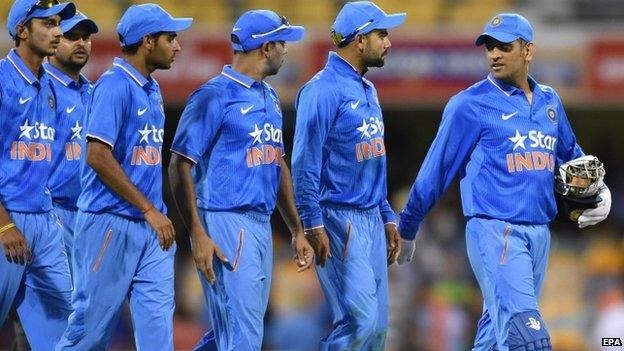
India's World Cup squad under Mahendra Singh Dhoni is younger and carries less baggage
With the cricket World Cup set to begin in less than a month, sports writer Suresh Menon tackles the question: can India regain the World Cup?
Every four years since 1983, the question has been asked in India with a mixture of hope and uncertainty.
Put like that, the answer is always "yes" for, of course, any of half a dozen countries can win.
India's success in 1983, external democratised cricket in two ways - by introducing a policy of rotating venues and giving other teams the confidence to aspire for victory.
The three tournaments following 1983 saw three different winners; India, as co-hosts were expected to win at least two of them, but Australia, Pakistan and Sri Lanka came through.
Since their second win in 2011, India have played 95 one-day internationals (before the start of the tri-series in Australia), won more matches (57), and scored at a better rate (5.57) than any other team. Only Sri Lanka have played more games (112).
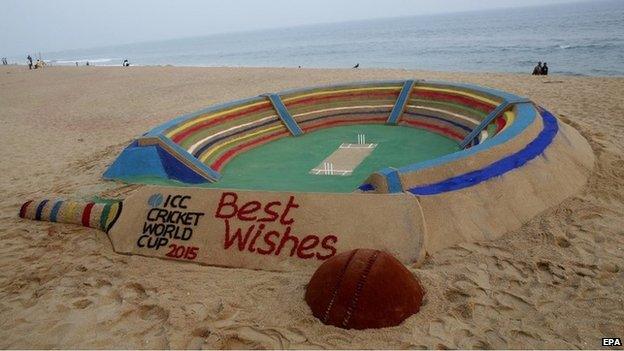
Cricket is India's most popular sport
The format - every team playing every other in two pools and then the top four from each qualifying for the quarterfinals - means that India can afford one or two bad results and still make the grade, unlike in 2007 when they were under pressure after losing to Bangladesh and failed to make the knockout.
When the World Cup was first held in the subcontinent, India and Pakistan were placed in different groups in the fond hope that they would meet in the final.
Later, with an India-Pakistan encounter generating the biggest television audience and public interest, no matter where it is played and at what stage, the administrators took the pragmatic step of having these countries in the same group, so at least one clash between them was guaranteed.
India's pool comprises South Africa, Pakistan, West Indies, Zimbabwe, Ireland and UAE. A quarter-final slot seems assured. Two good matches thereafter and they are in the final.
All very simple and encouraging on paper - an argument which holds good for the top half a dozen teams. But cricket matches are not played on paper, and that is where India's problems surface.
On bouncing Australian wickets and seaming New Zealand wickets, India may not inspire confidence.
But this is a team which has for years now divorced its non-performance abroad in the longer format from its intensity and confidence in the shorter ones.
That only four players from their Cup-winning side four years ago survive is indication that this team, under Mahendra Singh Dhoni, is younger and carries less baggage.
Only Dhoni, 33, and Stuart Binny, 30, are out of their 20s. In Virat Kohli, they have one of three finest batsmen in the format today.
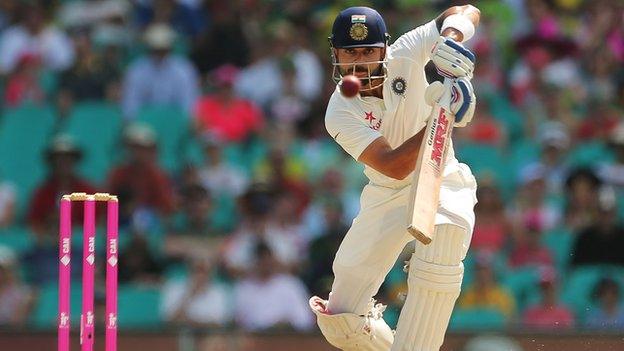
Indian hopes for a win will be riding on batsman Virat Kohli
Rohit Sharma, world record holder with a stunning 264 in an ODI, is a different player from the one whose concentration lapses in the course of a Test innings.
Suresh Raina is world class in this format, a long way from the batsman who struggles in Tests, and finished with a pair in his last outing.
A batting line-up thus: Shikhar Dhawan, Sharma, Kohli, Raina, Dhoni, Ajinkya Rahane (or Ambati Rayudu), matches the best in the world.
Once again it is the bowling that will cause concern.
Ravichandran Ashwin, a 2011 survivor - along with Dhoni, Raina and Kohli - will probably be the spearhead since the fast men haven't been inspiring.
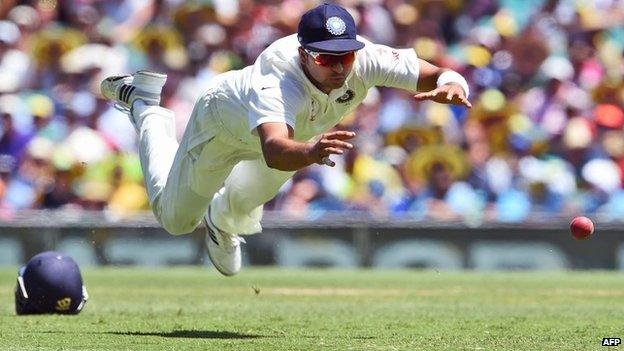
Suresh Raina is in top form at the moment
Yet, the likes of Ishant Sharma, Mohammad Shami and Bhuvaneswar Kumar are different bowlers when there is only a maximum of 10 overs to deliver, wicket-taking is not a major concern, and plenty of rest is guaranteed.
In any case, unlike Tests which are won by bowlers, one-day matches are won by batsmen, and here India are well served.
With Ravindra Jadeja still recovering from injury, and some others showing signs of tiredness following exacting tours of England and Australia, fitness may be a key concern for India.
The tri-series in Australia (England are the other team) will provide some answers, but the batting will have to deliver in every match to make up for the weaknesses in bowling.
A tall order, but not impossible.
Australia, four-time winners, playing at home must start top favourites. South Africa, who have, since their debut in 1992 picked up the tag of "chokers" will, once again, try to shake off that image. They have the team for it.
No side has been in the semifinals more often than New Zealand's six. This has been a terrific year for them, and they have been one of the most consistent one-day teams. Any of them can win. Pakistan and Sri Lanka complete the top six candidates.
Suresh Menon is Editor, Wisden India Almanack
- Published7 January 2015
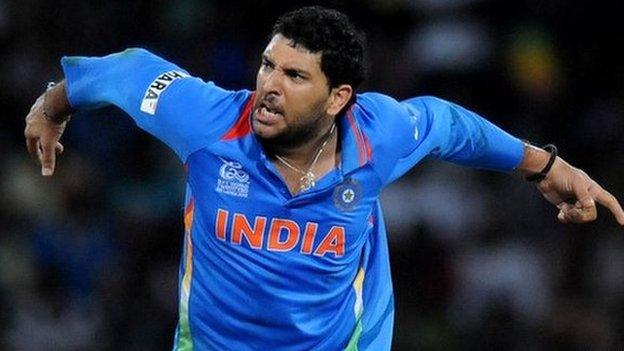
- Attribution
- Published2 February 2015
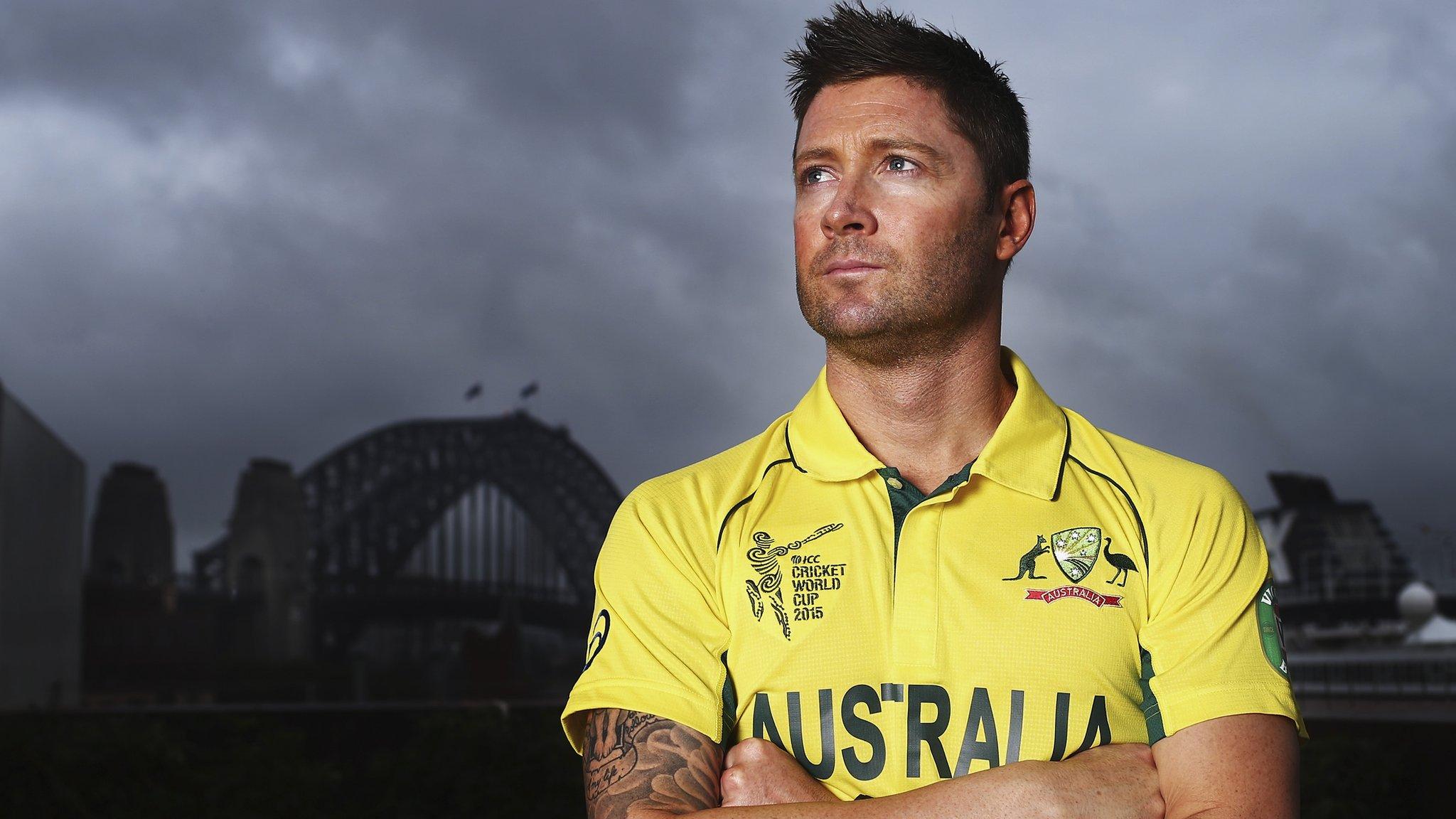
- Attribution
- Published30 July 2013
